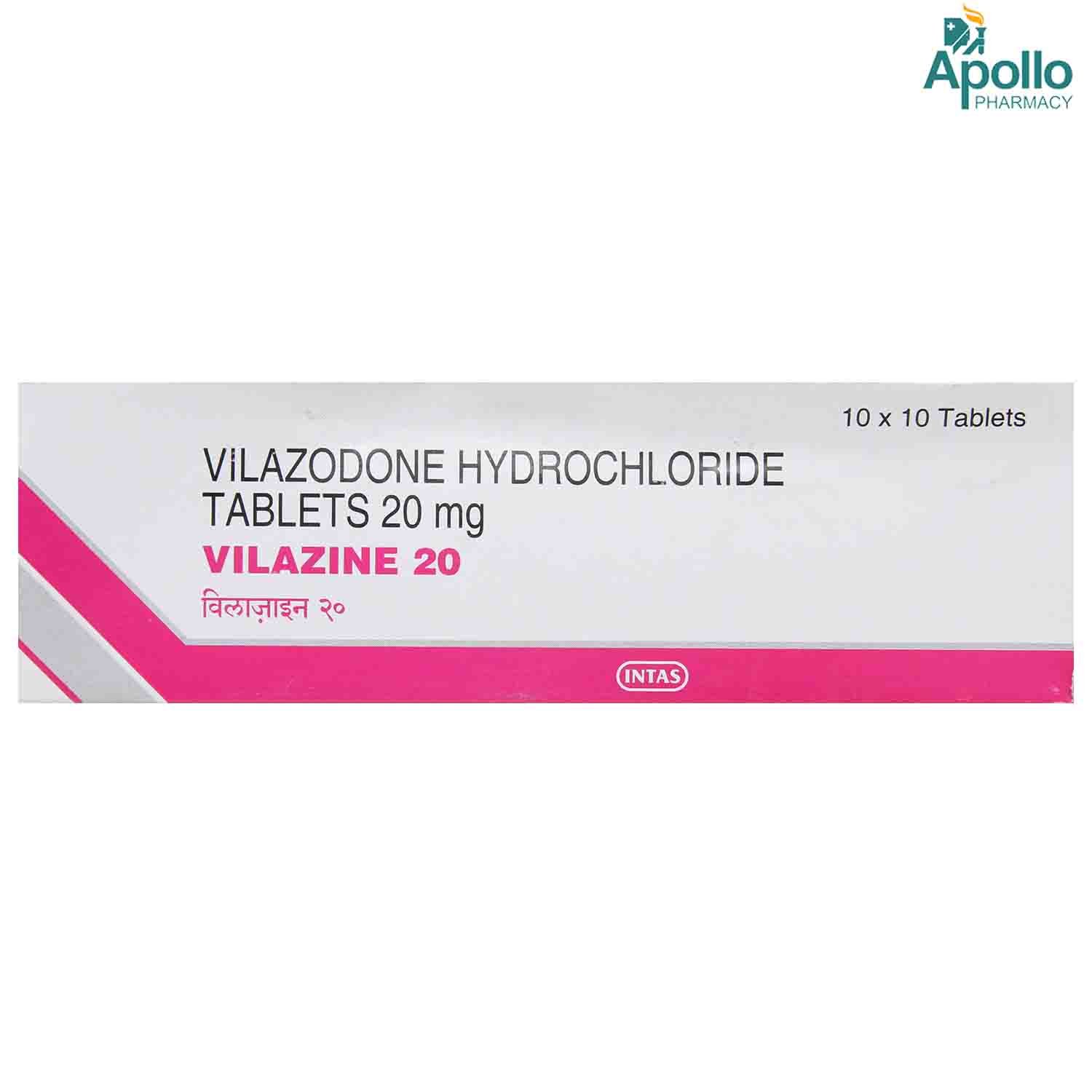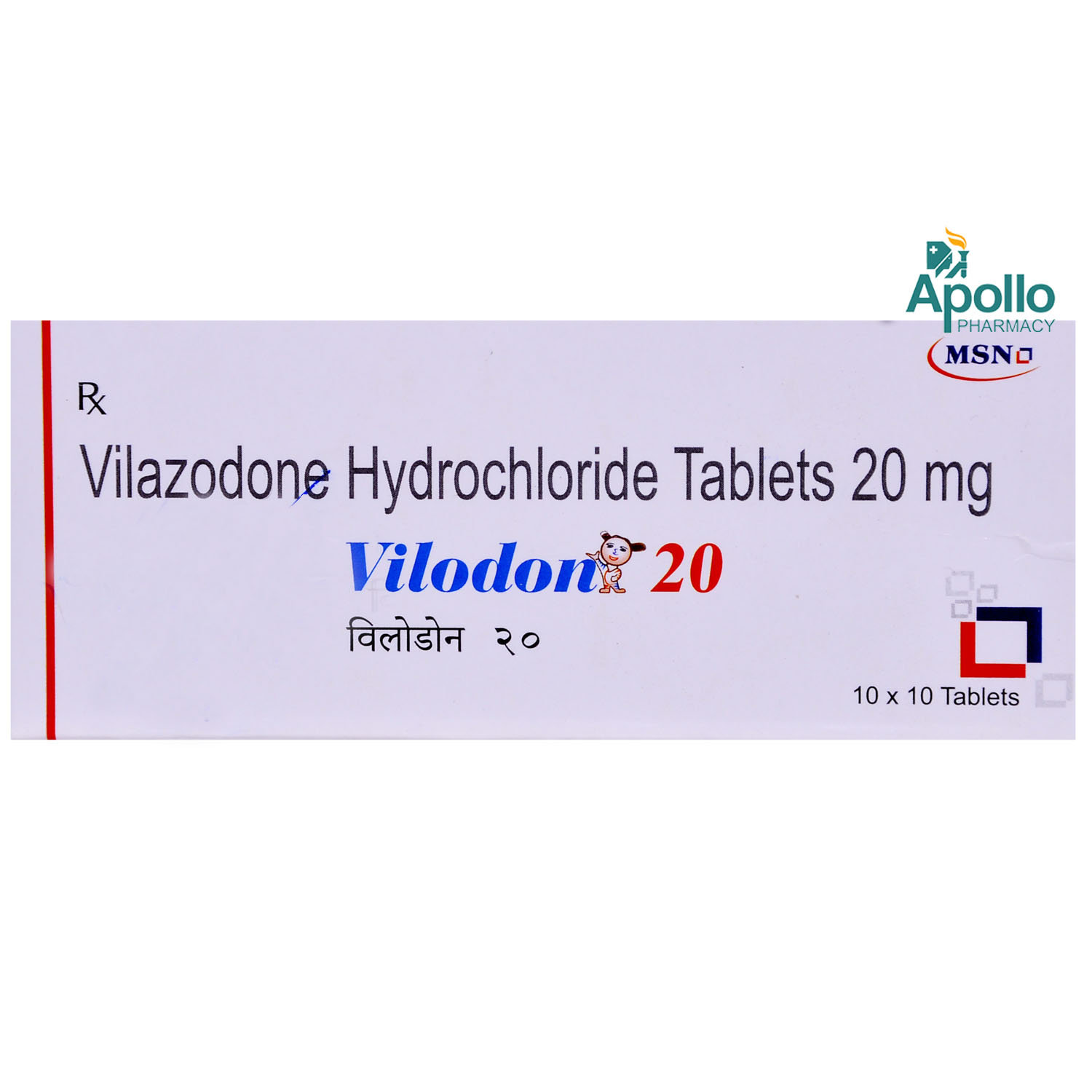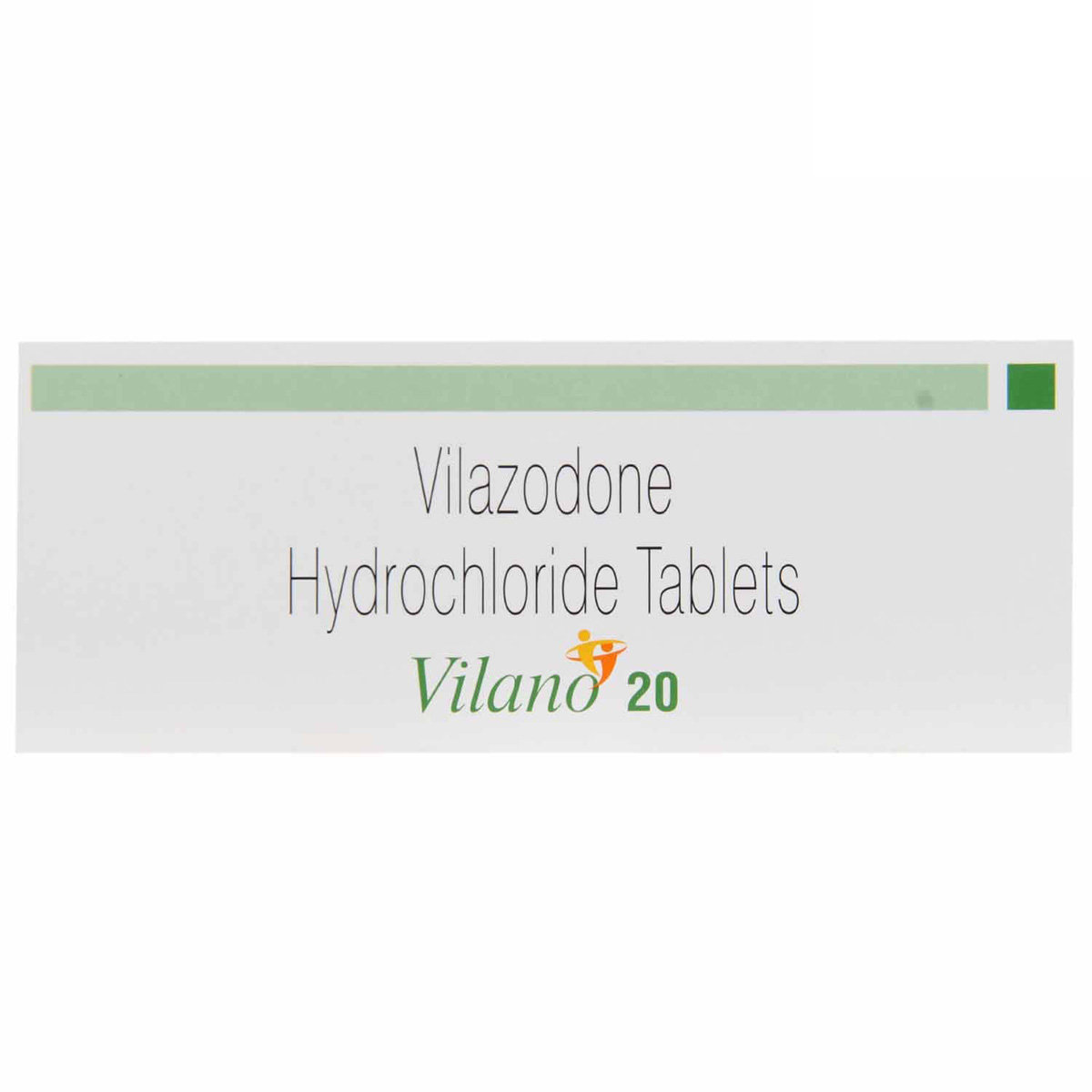Vilazodone
About Vilazodone
Vilazodone belongs to the class of medications called ‘antidepressants’ used to treat the major depressive disorder (MDD) or clinical depression. Major depressive disorder, also known as clinical depression, is a mental health disorder characterized by persistent and intense loneliness (nearly every day for at least two weeks).
Vilazodone contains ‘Vilazodone’, which increases serotonin levels (a chemical messenger) in the brain. Serotonin is a hormone that helps improve mood, well-being, and happiness. Hence, an increase in serotonin levels helps to decrease symptoms of depression.
You should take this medicine exactly as prescribed by your doctor. Vilazodone may cause side effects such as diarrhoea, nausea, vomiting, and insomnia (sleeping problems). These side effects usually resolve without requiring any treatment. However, if any of these side effects persist or worsen, inform your doctor immediately.
It is not recommended to take Vilazodone if you are allergic to any contents of it. Before taking Vilazodone, inform your doctor if you have seizures (fits), alcohol abuse, liver or kidney disease, bleeding disorder, glaucoma (an eye condition), and bipolar disorder. Vilazodone should be used with caution in pregnant and breastfeeding women. Vilazodone is not recommended for children or adolescents below 18 years of age as this medicine increase the risk of suicidal tendencies. No dose adjustments are required for elderly patients. It is not recommended to take alcohol as it increases the risk of side effects. Do not drive or operate heavy machinery as it may decrease your alertness.
Uses of Vilazodone
Medicinal Benefits
Vilazodone is used in the treatment of major depressive disorder. It increases the serotonin hormone levels, which improves mood, energy, and feelings of well-being. It can decrease the number and frequency of depressive episodes. It helps in reducing the symptoms of depression effectively and improves quality-of-life. It can also be used to treat anxiety.
Directions for Use
Storage
Side Effects of Vilazodone
- Nausea
- Vomiting
- Insomnia (difficulty in sleeping)
- Dizziness
- Diarrhoea
Drug Warnings
It is not recommended to take any monoamine oxidase inhibitors (MAOIs) within the 14 days after stopping Vilazodone or do not take Vilazodone within 14 days after stopping MAOIs. The interaction between these two drugs can be fatal sometimes. Vilazodone may worsen depression and increase suicidal tendencies, so inform your doctor immediately if you notice any unusual changes in your mood or behaviour. Vilazodone may cause serotonin syndrome or neuroleptic malignant-like syndrome, which is characterized by symptoms such as high blood pressure, agitation, confusion, excess sweating, and increased heart rate. In such cases, the doctor may discontinue treatment and provide supportive therapy. Vilazodone may increase bleeding risk when used along with nonsteroidal anti-inflammatory drugs (NSAIDs), aspirin, or blood thinners. Vilazodone may activate mania (abnormally heightened response or energy levels), so patients should be screened regularly for bipolar disorder. Vilazodone may cause hyponatremia (decreased sodium levels in the blood) when used in people with the syndrome of inappropriate antidiuretic hormone secretion (SIADH), a condition in which the body retains too much water. Do not stop taking Vilazodone even if you feel better without your doctor’s advice. Abrupt stopping this medicine may cause withdrawal symptoms such as sleep problems, irritability, and excessive sweating. The doctor may gradually reduce the dose before completely stopping the treatment from avoiding withdrawal reactions.
Drug Interactions
Drug-Drug Interactions: Vilazodone may interact with other antidepressants (selegiline, tranylcypromine, phenelzine, isocarboxazid, amitriptyline, and fluoxetine, etc.), a medicine used to treat fits (mephenytoin), a herbal medicine used to treat depression (St. John’s Wort or Hypericum perforatum), nonsteroidal anti-inflammatory drugs (ibuprofen, diclofenac, and aceclofenac, etc.), pain killers (tramadol and aspirin), diuretics or water pills, medicines used to treat mood disorders or mental illnesses (buspirone and tryptophan, etc.), blood thinner (warfarin) and medicines used to treat migraine (sumatriptan and rizatriptan).
Drug-Food Interactions: No interactions found.
Drug-Disease Interactions: Vilazodone should be used with caution in patients with alcohol abuse, seizures (fits), liver or kidney disease, bleeding disorder, glaucoma (an eye condition), and bipolar disorder.
Drug-Drug Interactions Checker List:
Safety Advice

Alcohol
cautionAvoid consumption of alcohol as it may interact with Vilazodone and increase the risk of side-effects.

Pregnancy
cautionVilazodone should be used in pregnant women only when clinically needed and if the benefits outweigh the risks. Please consult your doctor. Your doctor will weigh the benefits and potential risks before prescribing Vilazodone.

Breast Feeding
cautionVilazodone should be used in breastfeeding mothers when clinically needed and if the benefits outweigh the risks. Please consult your doctor. Your doctor will weigh the benefits and potential risks before prescribing Vilazodone.

Driving
cautionDo not drive or operate heavy machinery as Vilazodone may affect alertness.

Liver
cautionVilazodone should be used with caution in patients with severe liver diseases. The dose may have to be adjusted by your doctor.

Kidney
cautionVilazodone should be used with caution in patients with severe kidney diseases. The dose may have to be adjusted by your doctor.

Children
unsafeVilazodone is not recommended in children below 12 years of age.
Habit Forming
Diet & Lifestyle Advise
- Maintain a healthy diet and exercise regularly helps in improving overall health and boosts self-esteem.
- Regularly attend therapy sessions.
- Perform meditation and yoga. This helps in relieving stress and provides relaxation.
- Follow a regular sleep pattern to improve the amount and quality of sleep you get.
- Include foods rich in omega fatty acids such as fish, nuts, fresh fruits, vegetables, and olive oils.
- Neurotransmitters are made up of amino acids. Amino acid-rich foods such as meat, dairy products, and certain fruits and vegetables help maintain neurotransmitters' proper maintenance.
- Complex carbohydrates help in stimulating serotonin (a feel-good neurotransmitter). These include whole grains, legumes, spinach, broccoli, oranges, and pears.
- Exercising helps in the production of the body’s natural antidepressants. It also helps in relieving stress, improving mood, boosts self-esteem, and provides restful sleep.
- Avoid smoking and alcohol consumption.
- Learn about your condition, understand the risk factors, and follow the doctor’s treatment plan.
Special Advise
- Inform your doctor that you are taking Vilazodone if you are undergoing any medical or dental treatment.
Patients Concern
Disease/Condition Glossary
Major depressive disorder: It is also known as clinical depression and consists of one or more major depressive episodes. A major depressive episode indicates a persistent (nearly every day for two weeks) depressed mood that can interfere with daily activities. The patient may experience at least 5 of the following nine symptoms during a major depressive episode: depressed mood, loss of interest in usual activities, a significant change in weight or appetite, increased or decreased sleep, agitation, increased fatigue, feeling of guilt, or worthlessness, impaired concentration, and suicidal thoughts or behaviour. The exact cause of depression is unknown. However, factors such as stress, changes in hormone levels, alcohol or drug abuse, abuse during childhood, certain medical conditions, and medications might increase the risk of developing depression.
FAQs
Vilazodone contains 'vilazodone' which is an antidepressant. It works by restoring the levels of serotonin in the brain. Serotonin is a hormone or chemical messenger in the brain responsible for improving energy, mood, and emotion levels.
Vilazodone may cause side effects such as diarrhoea, nausea, vomiting, and insomnia (sleeping problems). These side effects usually resolve without requiring any treatment. However, if any of these side effects persist or worsen, inform your doctor immediately.
In case you miss a dose of Vilazodone, do not take a double dose of Vilazodone. If you remember the missed dose before sleeping, take it at that time and take Vilazodone at the same time the next day, which were you taking earlier. If you remember the missed dose the next day, leave the skipped dose, and continue with the next dose.
Yes,Vilazodone cause withdrawal symptoms, if you suddenly stop your medicine even if u feel better. Please reach out a health care professional.
Vilazodone cannot be used in epilepsy or are having electroconvulsive treatment .Vilazodone may increase your risk of having a seizure.
Vilazodone should be used with caution in patients with alcohol abuse, seizures (fits), liver or kidney disease, bleeding disorder, glaucoma (an eye condition), and bipolar disorder, as the Vilazodone may worsen these conditions.









